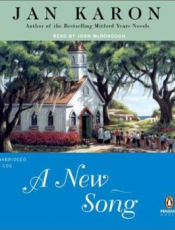one of the most important and critical battles of the civil war took place on the soil of pennsylvania. the battle of gettysburg commenced on the 1st day of july, 1863, and lasted for three days. the invasion of pennsylvania by lee’s forces was a bold turning of the tables upon the federal forces, but fortunately they had a brave, cool, and skillful commander in general meade, who beat back the confederates with terrible loss.
it is needless to say that excitement, amounting to panic, prevailed throughout the north. had lee been successful in his bold movement, he would probably have continued his victories through the state, and menaced more than one northern city. the danger was averted, but the victory was won at large cost. the federal loss{274} in dead, wounded, and missing amounted to twenty-three thousand, though considerably less than the losses on the other side. a piece of land adjoining the cemetery of the town was given by the state as a last resting-place for the loyal soldiers who had fallen in the battle, and on the 19th of november it was dedicated. two addresses were made—one by hon. edward everett, which was not unworthy of the eminent massachusetts orator; but the second, though brief, was a gem which will live longer than the stately periods of everett. it was by president lincoln himself, and surprised even those who best appreciated him. there are few of my readers to whom it is not familiar, but i can not deny myself the pleasure of recording it here:
“four score and seven years ago,” said mr. lincoln, “our fathers brought forth upon this continent a new nation, conceived in liberty, and dedicated to the proposition that all men are created equal. now we are engaged in a great civil war, testing whether that nation, or any nation so conceived and so dedicated, can long endure. we are met on a great battle-field of that war. we have come to dedicate a portion{275} of that field as a final resting-place for those who here gave their lives that that nation might live. it is altogether fitting and proper that we should do this. but in a larger sense we can not dedicate, we can not consecrate, we can not hallow this ground. the brave men, living and dead, who struggled here, have consecrated it far above our power to add or detract. the world will little note, nor long remember, what we say here; but it can never forget what they did here. it is for us, the living, rather to be dedicated here to the unfinished work which they who fought here have thus far so nobly advanced. it is rather for us to be here dedicated to the great task remaining before us, that from these honored dead we take increased devotion to that cause for which they gave the last full measure of devotion; that we here highly resolve that these dead shall not have died in vain; that this nation, under god, shall have a new birth of freedom, and that the government of the people, by the people, and for the people shall not perish from the earth.”
is there anything to be found in the addresses of any orator, ancient or modern, more elevated in sentiment or admirable in expression? yet the{276} speaker had been reared in the backwoods, a stranger to schools and colleges, and his eloquence was neither acquired nor inherited. this speech alone proclaims abraham lincoln a man of genius.
